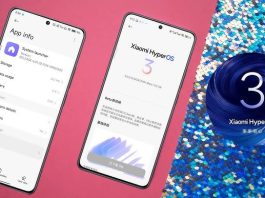In a significant move aimed at bolstering cybersecurity for its Chinese operations, Microsoft is mandating a switch from Android devices to iPhones for all employees starting September 2024. This policy shift highlights the challenges posed by restricted access to Google Mobile Services (GMS) in China, which are essential for running critical Microsoft security applications.

Why the Switch? Security Concerns and Limited Google Access
The core driver behind this decision lies in the absence of Google Mobile Services (GMS) within the Chinese mainland. GMS encompasses a suite of popular Google apps and services, including the Google Play Store. Since these services are unavailable in China due to government regulations, employees cannot access and utilize Microsoft’s security apps like Microsoft Authenticator and Identity Pass from the Play Store. These applications play a crucial role in enabling multi-factor authentication and secure access to company resources, making them indispensable for robust cybersecurity.
Stepping Up Security: A Response to a Changing Threat Landscape
Microsoft’s decision to prioritize iPhones in China aligns with its recently launched Secure Future Initiative. This initiative reflects the company’s heightened awareness of the evolving cybersecurity landscape and its commitment to proactive measures against cyber threats. Recent cyberattacks, including a major breach linked to Russia impacting various US government agencies earlier in 2024, have underscored the critical need for robust security measures. By ensuring all essential security apps function seamlessly on employee devices, Microsoft aims to create a more secure work environment in China.
Geopolitical Tensions: A Broader Context
The policy shift also resonates with the ongoing geopolitical tensions between the US and China. In recent times, Chinese government-backed entities have advised their employees to avoid foreign technology due to security concerns. Furthermore, the US government has implemented strict sanctions on specific Chinese companies operating within its borders. While the specific reasons behind Microsoft’s decision are rooted in technical limitations regarding GMS accessibility, the move inevitably intersects with the broader geopolitical context.
A Strategic Move: Protecting Information Assets
Microsoft’s decision to equip employees with iPhones in China is a strategic move designed to safeguard its corporate resources and sensitive information. By ensuring consistent access to crucial security apps, the company aims to minimize vulnerabilities and mitigate potential cyberattacks. This prioritization of security aligns with Microsoft’s global commitment to protecting user and company data.
Transition and Support for Employees
Microsoft is committed to smooth sailing during this transition. Affected employees will receive detailed instructions on how to collect their new iPhones and configure them for work use. The company will provide all necessary support throughout the transition process to ensure continued productivity and a seamless shift from Android to iOS devices.
Intriguing Expansion: iPhone Mandate Extends to Hong Kong
Interestingly, Microsoft has also implemented the iPhone-only policy in Hong Kong, even though the Google Play Store is readily available there. While the exact rationale behind this extension remains undisclosed, it might indicate a broader strategy within Microsoft to standardize its mobile device management practices across its Asian operations.
Looking Forward: A Secure Future with Enhanced Measures
Microsoft’s decision to transition Chinese employees to iPhones demonstrates the company’s proactive approach to cybersecurity in a challenging environment with limited access to GMS. This move reflects a broader industry trend of companies prioritizing security measures in the face of evolving threats. As technology continues to advance and the geopolitical landscape remains fluid, we can expect further developments and innovations in the realm of corporate cybersecurity.
FAQs
Q: Why is Microsoft switching employees in China to iPhones?
A: The unavailability of Google Mobile Services (GMS) in China prevents employees from accessing essential Microsoft security apps like Microsoft Authenticator and Identity Pass from the Google Play Store.
Q: Does this policy apply to all Microsoft employees in China?
A: Yes, the iPhone mandate applies to all Microsoft employees in China, including those based in Hong Kong.
Q: Will employees still be able to use their Android phones for personal use?
A: Yes, the policy only restricts the use of Android devices for work purposes. Employees can continue using their personal Android phones as usual.
Q: What support will Microsoft provide to employees during this transition?
A: Microsoft will provide detailed instructions on collecting the new iPhones and setting them up for work use. They will also offer any necessary support to ensure a smooth transition.



